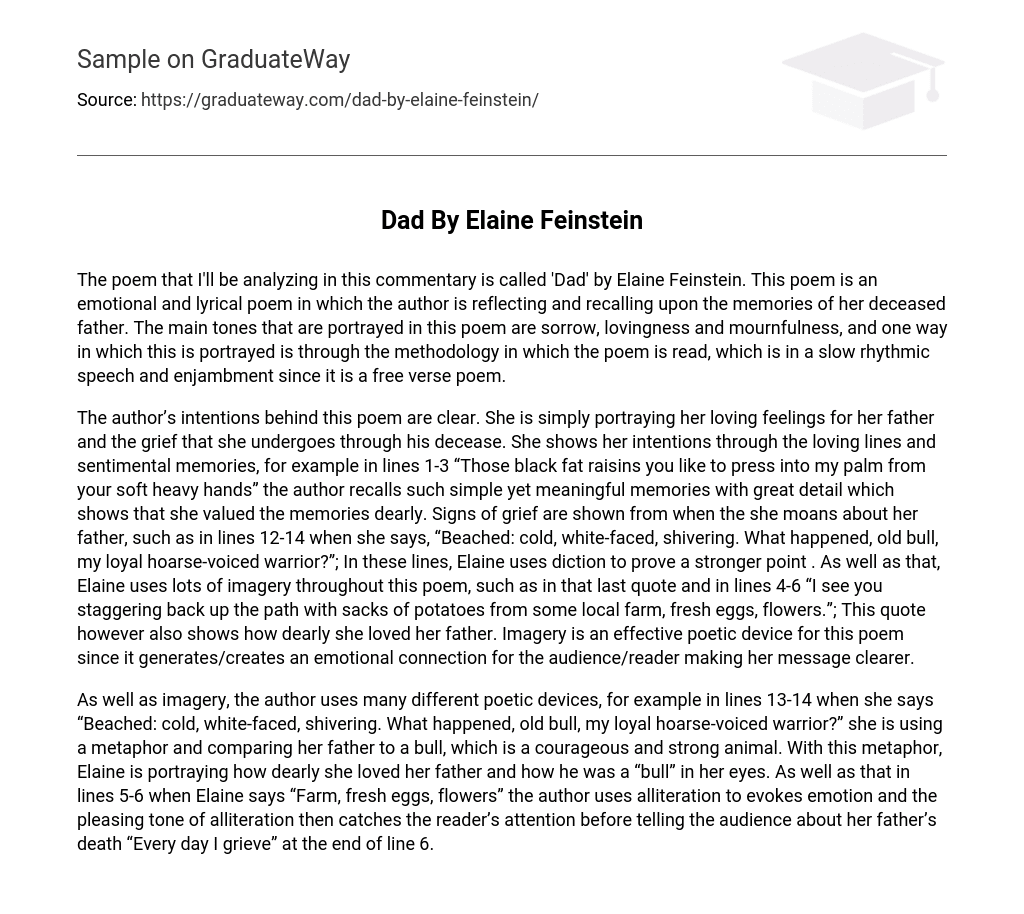The poem being analyzed in this commentary is titled ‘Dad’ by Elaine Feinstein. This emotional and lyrical poem reflects upon the memories of the author’s deceased father. It expresses sorrow, lovingness, and mournfulness through its slow rhythmic speech, enjambment, and free verse structure.
The author’s intentions for this poem are evident, as she portrays her love for her father and the grief she experiences upon his death. She expresses her intentions through affectionate lines and sentimental memories. For instance, in lines 1-3, she fondly remembers simple yet significant moments, such as when her father would place black fat raisins in her hand with his soft hands. This attention to detail highlights the value she placed on these memories. The poem also reveals signs of grief as the author mourns the loss of her father, as seen in lines 12-14 when she describes him as “beached: cold, white-faced, shivering.” By carefully choosing her words, Elaine emphasizes the depth of her sorrow. Additionally, the poem is rich in imagery, such as the last quote and lines 4-6, where the author envisions her father returning home with sacks of potatoes, fresh eggs, and flowers. This imagery further conveys her deep love for him. Ultimately, the poet’s use of imagery creates an emotional connection with the audience and enhances the clarity of her message.
Using various poetic devices, the author incorporates imagery to convey her affection towards her father. In lines 13-14, she employs a metaphor by comparing her father to a bull, symbolizing his courage and strength. Through this metaphor, Elaine depicts her deep admiration for her father as her “loyal hoarse-voiced warrior.” Additionally, in lines 5-6, the author utilizes alliteration with the repetition of the initial “f” sound in “Farm, fresh eggs, flowers,” evoking emotional impact. This pleasing tone of alliteration captivates the reader’s attention prior to revealing her father’s demise, as expressed in the line’s conclusion: “Every day I grieve.”





